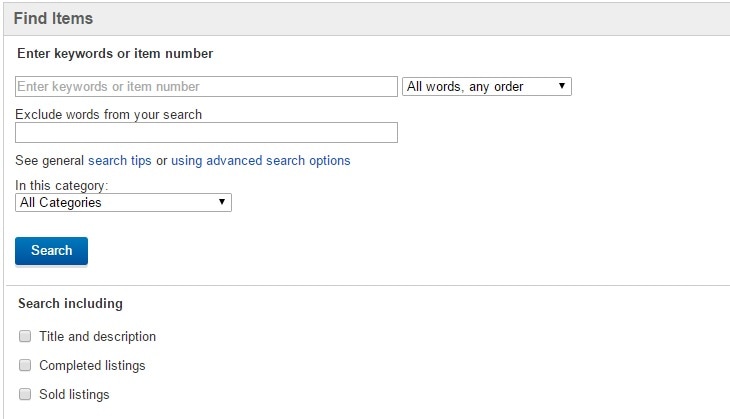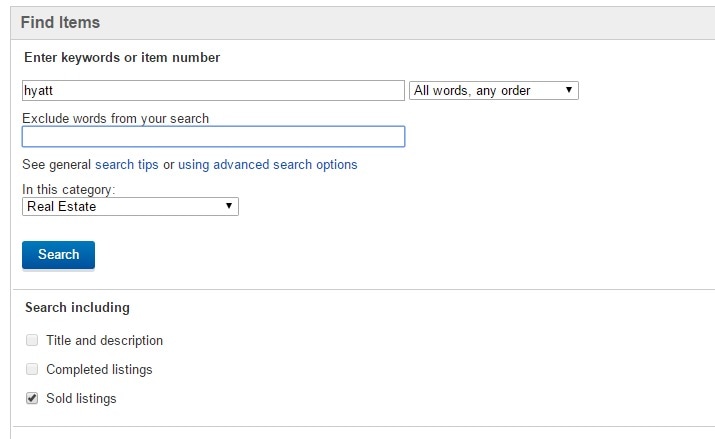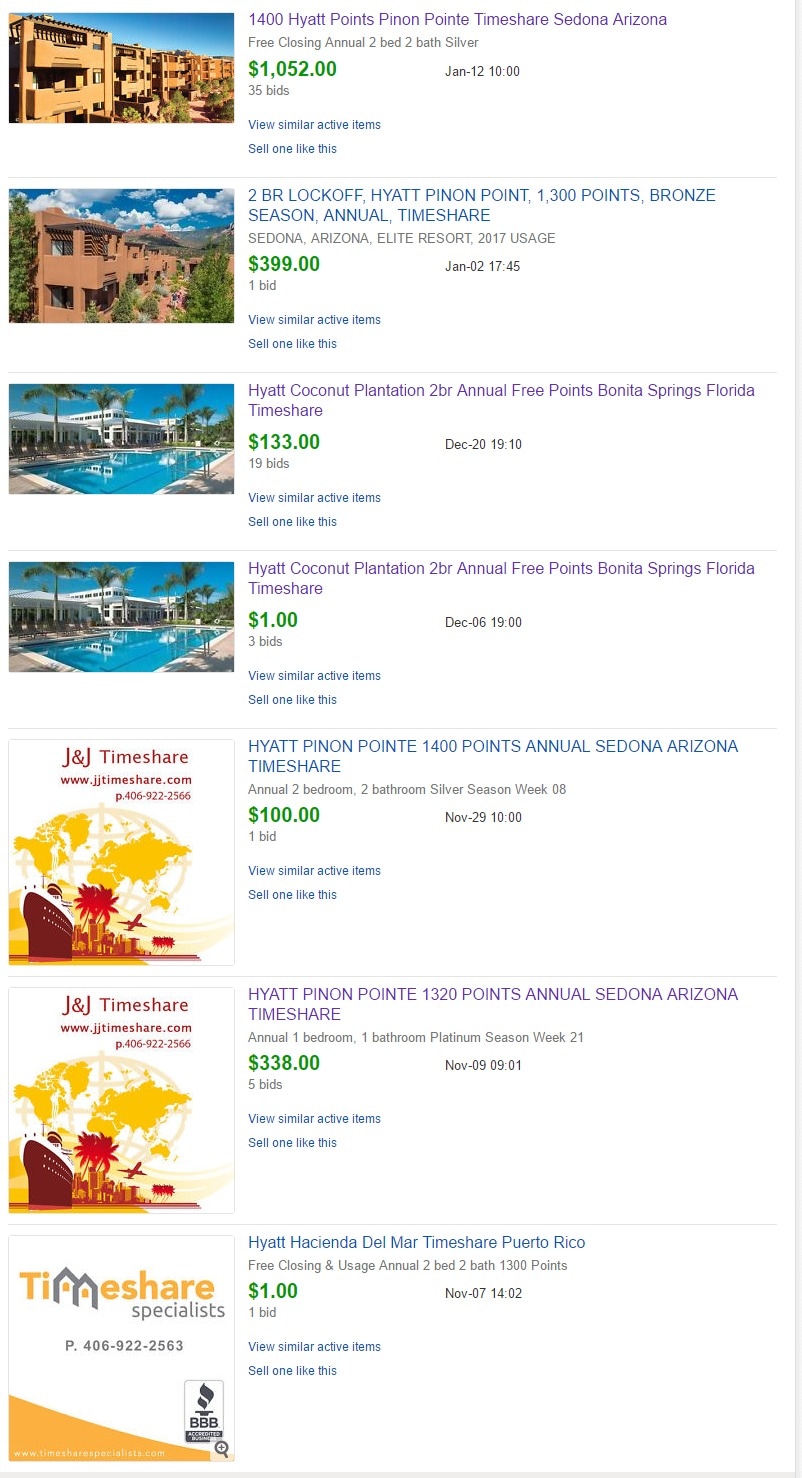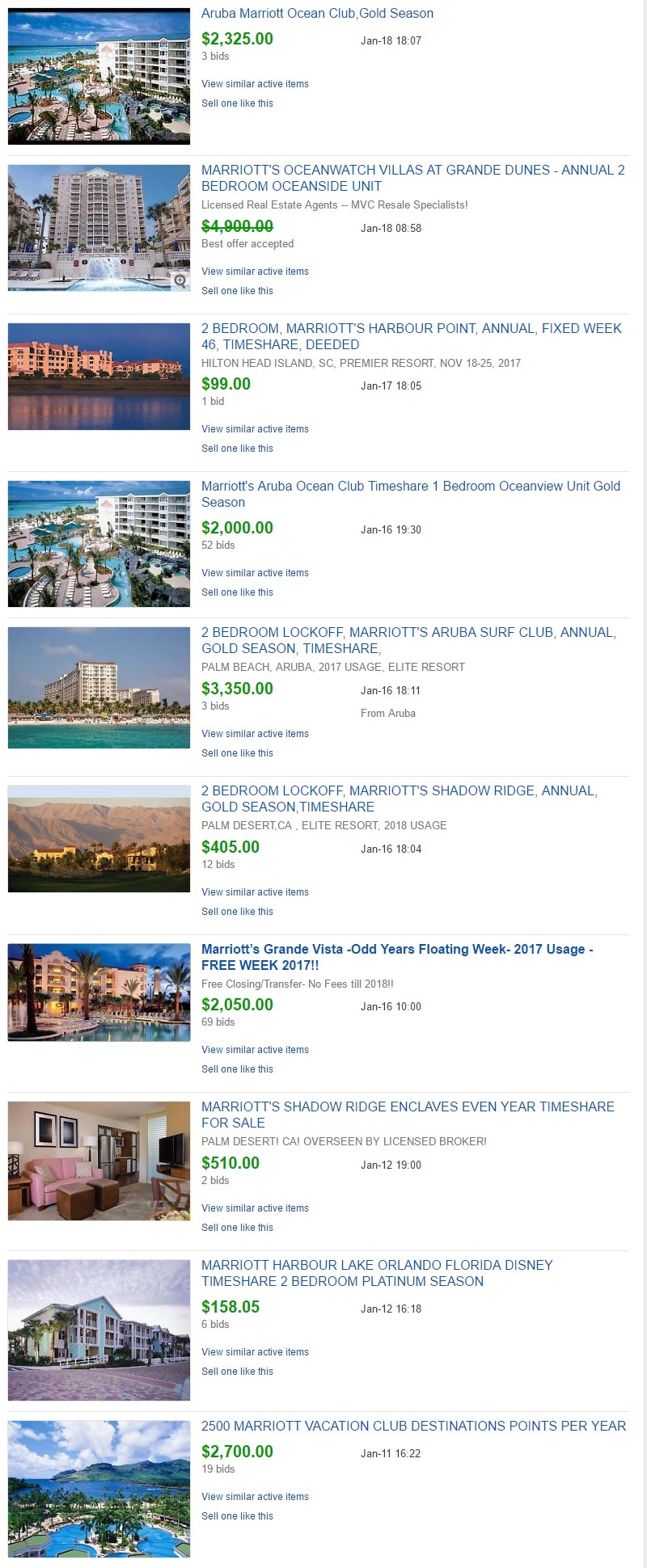|
While there are many things to consider if you actually want to own a timeshare, one easy question to ask yourself is whether you are a Christmas week traveler?
What I mean by this is whether you will want or need to travel over the standard Christmas break that generally occurs from December 21st through January 2nd of each year. Prior to having kids, I HATED traveling this week and generally avoided it at all costs. Flights were expensive, hotels are overpriced, restaurants are booked and everywhere was busy. Now that I have kids, we are somewhat forced to travel with these crowds as if we do not travel during Christmas break, there is very little time throughout the remainder of the year when there are any decent size breaks where it makes sense to travel far. Christmas week is a tough week to travel as almost the entire world has off during this time or this is when most people take vacation time since you can use fewer vacation days and combine them with the national holidays to get a good chunk of time off. Timeshare Considerations: Since most people travel during this time, most people will plan far in advance in order to get there desired resort. Additionally, many people who purchased Christmas week at whatever resort they own at will likely use that week. Therefore, the timeshare inventory during this time is sparse. As I wrote about here, my particular strategy for Christmas break last year DID NOT work as I did not get Christmas week despite putting in a request a full year in advance. Key Consideration Prior to Considering Timeshare Ownership: I try to be very transparent and explain that timeshare ownership is NOT for everyone. Timeshares have significant issues and the systems are complicated. However, I think that a simply question to ask yourself on whether you are a Christmas week traveler is a solid question to consider prior to ever consider being a timeshare owner. If you purchase a timeshare solely to exchange (my particular strategy) and you want to travel during Christmas week in popular destinations (Hawaii, Ski destinations, Disneyworld, etc.), you are likely to be disappointed with timeshare ownership. Getting high quality resorts during Christmas week is incredibly difficult and even when I plan a year or two in advance, I rarely succeed in getting my top pick for this week. Strategy for Hotel Points: As I have explained in other posts, I think that it is extremely important to have hotel points in order to maximize timeshare ownership. The general strategy that I have discussed previously was to book a hotel using points (generally fully refundable) and then proceed to put in a request for a timeshare at that destination. If the timeshare does not get confirmed, you still have a hotel room for "free" since you used points. Once easy way to get a ton of points is through credit card signup bonuses. I wrote about one particular offer here which is a very solid deal. This particular strategy has been very useful to me but is EXTREMELY important for Christmas week travel. Getting rooms with hotel points can be difficult as well so you need to book far in advance for Christmas week but hotel rooms are generally available even in the most desirable locations if you plan far enough in advance. Since the rooms are generally refundable, you still have flexibility and you can attempt to receive a timeshare for Christmas week. Conclusion: If you are a Christmas week traveler, meaning that you typically only travel during Christmas week or potentially one other week during the year, timeshare ownership is probably not the best for you. While I have had success in getting some great Christmas weeks through exchanges, these are not guaranteed and it is actually quite rare to get top quality resorts during this time. However, if you are not just a Christmas week traveler, timeshare ownership can be a great tool to travel for cheap. The week before Christmas and the week after Christmas usually has tons of availability at high quality resorts. If you are flexible for your vacation time, you can do very well with timeshares. My goal is to keep showing you how! What are your thoughts on traveling during Christmas week?
It would probably seem strange that you would be reading an article titled "I hate the Timeshare Industry" on The Timeshare Guru, a place meant to show readers how to maximize timeshare ownership but the fact is, the title says it all.
I continually have to do research on the in and outs of these timeshare programs in order to get the information to publish on this site. There is sparse information on the internet as the entire industry attempts to rely on the in-person sales presentation in order to close the deals. Timeshare Presentations I have sat through plenty of timeshare presentations and knowing timeshares and knowing the systems well, it always gets me extremely aggravated to hear the number of false statements or half-truths that the sales representatives say. These range from exaggerating the ease of exchanging into prime weeks to the "financial" value of the timeshare when you are done using it. Marriott Vacation Club Resale Solicitation In my latest dealings, I received an e-mail from the Marriott Vacation Club concerning resales directly from Marriott. As a quick bit of background, Marriott has two programs, its legacy week program which is the standard timeshare system of owning a week at a specific resort and its points program, where you purchase points to be able to exchange into the properties. Marriott no longer sells its weeks directly but does have a resale arm that sells these legacy weeks. Almost all third parties are selling the weeks program as there are not many resales on points since Marriott allegedly buys them back through their right of first refusal if a owner wants to sell them. One of the most material differences of purchasing through Marriott directly is the ability to convert your timeshare week into Marriott Reward Points. These functionality disappears if you purchase anywhere except Marriott. I find that the value to exchange into hotel loyalty points is generally very poor but it can make sense in limited situations. It does however give you a ton more flexibility on how you travel even if the value is poor. The solicitation that I received was for resales directly through Marriott for its legacy weeks program. I was interested to see the price for these resales as compared to other third party sites and eBay. Fortunately, they actually provide a transparent way to see the available units and the cost of these units. This can be found here: Marriott Vacation Club Resale Information If you sift through the information, you can see prices for what they offer but you cannot see the amount of maintenance fees. While the purchase price is important, maintenance fees are potentially even more important since these are the ongoing fees each year and will almost definitely increase each year. The Conversation I spoke to the Marriott representative for about 15 minutes quizzing him on the various differences between the programs and why it may make sense to purchase directly through Marriott instead of a third party. The particular representative that I received indicated that he worked for the Marriott Vacation Club for over 28 years and owned through their legacy program and their points programs. He was an expert in the Marriott Vacation Club. I continued to quiz him on various functionality and then asked him what property, in their legacy program, had the lowest maintenance fees. Generally, I use almost all of my timeshare weeks by exchanging them so the best way for me to get tremendous value out of my timeshares are to own weeks that have the lowest maintenance fees. As long as the week has a decent demand and the property is nice, they can trade very well through the programs so that I can exchange into prime weeks that would have a much higher maintenance fees. The general idea is to own a week with low maintenance fees and trade into weeks where the maintenance fees are much higher. I asked the representative and he indicated that "he does not know what property has the lowest maintenance fees" as each week and property was different. I pushed back and asked him how he does not know the answer to this question considering he worked with Marriott Vacation Club for 28 years and looks at prices and maintenance fees every single day. From this point in the conversation, he basically wanted nothing to do me and abruptly ended the conversation and wished me the best. I HATE the Timeshare Industry It appeared that once I started asking real questions and wanted to know real answers, he sensed that I was simply not a purchaser and didn't want to deal with me any longer. The truth of the situation was that I wanted to know what property had the lowest maintenance fees so that I can focus my search on those properties and see whether owning with Marriott can be worthwhile. After the conversation, I was truthfully incensed with the way that the representative handled the situation. He knew the information but didn't want to tell me the answer. He simply wanted to sell me on the "lower priced" resale inventory since they were apparently selling these for 50-75% of the original developer pricing. After this latest run in with the timeshare sales representatives, it really made me think that I HATE the timeshare industry. I love my timeshare, love the accommodations, love the value but absolutely despise the sales process. The sales process is truly atrocious as I always feel as though the sales representatives are hiding the truth or only sharing information that be used to turn their presentation into a sale. What can be done? I do not think that I am unique in my feelings as there are plenty of "owners" that really love their timeshare but hate the process. The goal of this blog is to educate readers on how timeshares work so that they can be knowledgeable on the timeshare systems and decide whether timeshare ownership can work for them and what system will work best based on their travel needs. My hope is that readers can review the information and make the decision themselves on what they want to own, the price they want to pay and where they want to purchase. If you are equipped with that knowledge, you can purchase a timeshare with ease since there is no sales pitch and you know what you want and know the pros and cons of timeshare ownership. Conclusion I really do hate the timeshare industry. The horrendous reputation is accurate for the sales process but unfortunately spills over to timeshare ownership. The sales pitches and my interactions with all timeshare representatives are generally all self serving and I rarely receive complete transparency when asking questions. I have called up a couple timeshare programs and they simply won't tell me anything over the phone as all information must be disclosed during a sales presentation. I find this to be a horrible business practice and it makes me livid that the entire industry uses this method to sell timeshares. Timeshares can be absolutely fantastic but obtaining the information and obtaining the truth can be very difficult. I hope that this blog change this issue. What have your experiences been with timeshare representatives? Leave your comments below! My family took an extended trip to Costa Rica for the month of July. While I would have highly preferred to be able to stay in timeshares for the entire trip (mostly due to space and having a full kitchen), this was not doable for a few reasons. Costa Rica is a wonderful destination but they simply do not have a ton of timeshare options. There are a few but not many high-quality timeshares which is an absolute must. We did stay at the Breeze Private Residences for one week (review is here) which was a timeshare property but I simply could not find suitable timeshares in Costa Rica for the entire month. Planning Strategy Booking a month vacation has its various challenges but doing it in a very cost-effective manner is difficult. As I mentioned in other posts, I am a huge points and miles fanatic so I have plenty of points and miles available to use. Using Citi Thank You Points For this trip, my family of four flew American Airlines to Liberia. I used Citi Thank You points for our fights. As a Citibank Prestige Credit Card holder, I was able to redeem my points for 1.6 cents per point. This option just vanished on July 23, 2017 and points are now worth less. Southwest Rapid Reward Points For our return flight, we flew Southwest Airlines. I am a huge fan of Southwest as they are the last airline that offer customer friendly policies – free bags, free cancellations, free changes, etc. Additionally, their customer service agents are generally friendly and helpful which is very noticeable when comparing it to other airlines. My wife and I both have a companion pass with Southwest so we are able to have our 2 kids fly with us for free. We were each able to score the companion pass through the option of exchanging our Marriott points to Southwest points with the available Marriott travel packages. Unfortunately, this option is now no longer available as of January 1, 2017. With the above methods, my family of four was able to get free roundtrip flights to Costa Rica. A good start. Week 1: Playas del Coco I was able to grab a fantastic deal through RCI for staying at the Breezes Private Residence Club. I paid $278.99 for the entire week in a 2-bedroom unit. This was an absolute steal as nightly rentals for this particular property were approximately $450 per night. The Breezes Private Residence Club is located in Playas del Coco and is a great area. There are tons of restaurants and activities right out the front door. I would highly recommend this destination and would definitely recommend the Breezes Private Residence Club.
Week 2: Arenal Volcano in La Fortuna
For week 2, we traveled to La Fortuna / Arenal which is located inland in the rainforest. La Fortuna / Arenal was a very cool destination with the volcano as the centerpiece. For our trip to Arenal, we stayed at the highly rated Hotel El Silencio del Campo. We chose this based on the Tripadvisor reviews which were stellar. The property generally lived up to those expectations but would say that the rooms, although spacious, needed a refresh. The décor and bedsheets were older than I would like. It was clean but definitely felt old and tired. However, breakfast was stellar, they had hot springs on the premise, fruit trees galore to pick throughout the property and had an awesome view of the volcano when the weather permitted. Citibank Prestige 4th Night Free Benefit For this stay, I again used our Citibank Prestige Credit Card in order to utilize our 4th night free benefit. If you are not familiar with this benefit, it can be extremely rewarding in that you will receive the 4th night free on any hotel booking made through the Citibank portal. This can literally save you thousands of dollars. The Citibank Prestige Credit Card has done an overall of its card and has revised some of its offers but they have kept in the 4th night free benefit and made it easier to get by expanding the ability to book online. For those of you interested, here is a link to the offer with 75,000 bonus points. A complete no-brainer to apply in my opinion.
For our stay in La Fortuna / Arenal, I paid about $200 per night for 4 nights and I will receive a $200 credit through Citibank’s 4th night free benefit. This effectively gave us 25% off our stay in Arenal which is decent considering that there are no timeshares or points based hotel chains in this area.
Week 3 and 4: Andaz Peninsula Papagayo Resort
For those of you in the miles and points world, there is a ton of buzz about the Andaz Peninsula Papagayo Resort. The reason that there is so much buzz is because it is an extremely nice resort and is only a category 4 hotel in Hyatt’s World of Hyatt program. This is significant in that the Chase Hyatt Credit Card gives you a free night stay in a category 1-4 hotel each year upon paying the annual fee of $75. Essentially, for $75, you can get a free night at the Andaz Peninsula Papagayo Resort where nightly rates are generally somewhere between $250-$1200 where the $1200 a night has been seen over Christmas. Also, since the Andaz Peninsula Papagayo Resort is a category 4 hotel, you can use 15,000 Hyatt World of Hyatt points per night which is a very good deal. The cash plus points rate of 7,500 points per night plus a payment of $100 per night is also a stellar deal. I will be posting a full review on our stay so stay tuned. Using my Chase Hyatt Free Night Certificate We ended up staying at the Andaz Peninsula Papagayo Resort for a total of 16 nights. I used my free category 4 certificate from my Chase Hyatt Credit card for the 1st night. Using Hyatt Points or Cash For the remaining 15 nights, we actually paid cash (a rarity as I almost always use points for our hotel stays!). This was not expected as I had planned on using the points plus cash option for 15 nights. If I had done this option, I would have used 112,500 Hyatt World of Hyatt Points and paid approximately $1500 for 15 nights. The cash plus points options is highly beneficial and would definitely recommend it. $100 per night for this resort is almost unheard of and I would pay that in a second. Using Hyatt's Best Rate Guarantee As I mentioned, I actually paid cash for the 15 night portion of our stay since I got a great rate with Hyatt. I was able to use Hyatt’s best rate guarantee. Hyatt’s best rate guarantee provides that they will match any rate you find on other websites and give you an extra 20% off your entire stay. I was lucky enough to find a lower rate for this time period and was successfully approved for the best rate guarantee. As a result, my nightly rate for 15 nights was approximately $156 per night. The Hyatt best rate guarantee has been revised as of July 31st where instead of giving you 20% off the matched rate, they will give you a $50 voucher for future travel. While they will still match the lower rate, they will not give you the extra 20% off. Hyatt can make you jump through various hoops to get their Best Rate Guarantee but I have been successful in using it. This revision is really bad for the way that I use the Best Rate Guarantee. I am not happy about this change as this will likely affect my hotel choices going forward. Marriott offers a 25% discount for its best rate guarantee and is much more accommodating than Hyatt but I definitely like Hyatt's properties. We'll see how this plays out before I switch my loyalties. Despite preferring timeshares for our travels, I will actually be a Globalist (top tier elite status in Hyatt) this year so we'll see how Hyatt treats me going forward. As stated, I was able to secure a rate of $156 per night. While higher than the per night cost of using the points plus cash rate of $100, I chose to pay cash instead of using 7,500 points per night. If I used points, I would be redeeming them a rate of less than 1 cent per point (0.007) which is a horrible deal. I generally get 2-3 cent per points and have received upwards of 6 cents per point for various redemptions. Therefore, I elected to pay cash. The total bill was about $3,000 for 15 nights. Higher than I would normally like to pay but still a good deal. Rates for our room (the Andaz Suite) during our stay were approximately $600 per night so we did well. Using Gift Cards for Further Discounts In an effort to get even more of a discount for our stay, I ended up purchasing Hyatt gift cards through cardcash. Cardcash is a second-hand reseller of gift cards. They buy gift cards from people who do not want gift cards for a discount and resell them to people who can use them and make a profit of the difference. Cardcash has mixed reviews and there are definitely times when gift cards arrive with zero balance or the balance disappears after purchasing. They offer a 45-day guarantee where they will refund your money if the cards value is not as described or disappears within 45 days. I have had good experiences with Cardcash but I only purchase on the day that I will be using it. I purchase it and immediately apply it to my room. This limits the chance of getting a bad card or having your balance disappear. I did receive one bad card and my order was refunded within 48 hours of purchase. For this stay, I was able to get Hyatt gift cards for a discount of 16% through Cardcash. Their discounts fluctuate but I was able to purchase $3,000 worth of Hyatt gift cards for about $2520. Using the Chase Ink Card for 5x Points One of the added benefits of using Cardcash is that purchases through Chase Ink Credit Card are coded as utilities which generate 5x Chase Ultimate Reward points. Therefore, by purchasing $2520 worth of Cardcash gift cards through my Chase Ink credit card, I received 12,600 Chase Ultimate Reward Points. Chase Ultimate Reward Points are very valuable and can transfer into multiple travel partners including Hyatt or can be redeemed for about 1.25 cents per point or for 1.5 cents per point if you have the Chase Sapphire Reserve Credit Card. Final Tally and Summary As you can see, I used multiple different strategies to get a month of vacation in Costa Rica. For our flights, these were completely free using Citibank Thank You Points and my Citibank Prestige Credit Card to redeem for American Airlines for our flight to Costa Rica and used Southwest Points for our return flights. Our kids fly free with us on Southwest since my wife and I both have the Companion Pass at the moment which we achieved by redeeming Marriott travel packages. For the first week, we used a timeshare and rented it through RCI’s Extra Getaways for a purchase price of $278.99 for the week in a 2-bedroom. No timeshare presentation required even though I did attend one ( I am The Timeshare Guru so I kind of needed to do it). For the next 4 nights, I used my Citibank Prestige Credit Card to take advantage of the 4th night free benefit. The total cost for these 4 nights was $800 minus the $200 credit for a total of $600. For the following 16 nights, I used my annual free night certificate for my Chase Hyatt Credit Card and paid cash for the remaining 15 nights. I was able to get a great rate using Hyatt’s Best Rate Guarantee. I was able to purchase discounted Hyatt gift cards for a further discount of 16% off our entire stay so the total was $2520 for 15 nights which is $168 per night which includes the resort fee and taxes. By purchasing the gift cards, I was also able to get 5x Chase Ultimate Reward Points by using my Chase Ink Credit Card for Cardcash. Therefore, even if I valued these points at only 1 cent per points, this equates to another discount of approximately $126. Here are the total numbers for accommodations for our month of travel:
Total: $3,272.99 Conclusion: The above is an actual real world example of how I utilize timeshares, frequent flyer miles, hotel points, credit card points and perks, hotel best rate guarantees and gift cards to maximize my travel. This can be complicated but it is doable. As you can see, we saved multiple thousands of dollars off of retail prices and traveled in luxurious accommodations for an entire month! I will be doing a detailed review of the Andaz Peninsula Papagayo resort in an additional post as this is definitely a property to check out (even though it is not a timeshare). The intent of this blog is to explain timeshares and how they can be a great tool for your travel arsenal. As you can see in the above, it is not the only tool that I use but they can be very useful and affordable. My goal is to show you how to incorporate timeshares in your travel plans and demystify timeshares, their costs and how they can work to your advantage. Timeshares are simply one tool among many to travel well and affordably. What are your thoughts on the above? Did I miss any strategies that I could have implemented? If you find this useful, please share this post across your social media channels! Your support is highly appreciated! I started this blog because I think that timeshares are misunderstood and if used properly and you can understand the systems, they can make worldwide travel affordable to most. While this statement is my true motivating factor, the initial purchase price of timeshares can be exorbitant and if people purchase at these exorbitant prices, timeshare ownership almost never makes financial sense. The key to maximizing timeshare ownership is to purchase a week at a reasonable cost. "Reasonable" definitely has different meanings for different programs. I have not gone into much detail on purchasing from a developer or purchasing resale, but there will be more posts to come on this topic. While there may be some benefits to purchasing directly from the developer, the price for that privilege is generally extremely high as compared to resale. I have argued in other posts that the initial timeshare purchase price should be considered a "sunk cost" since it will be difficult if not impossible to ever recoup the initial price. The current timeshare model is based on developer sales since this is where most of the money for timeshares is made. Developers do not profit from the resale market so they tend to impose penalties to resale purchasers in order to keep developer sales high. The difference in price between developer sales and resale sales can literally be tens of thousands of dollars. As I recently discussed in my other post concerning Westgate, Westgate was trying to sell me a timeshare for over $100,000 when the same timeshare was being offered on ebay for $1.00 - YES $1.00!!! As I listened to their pitch and saw the economics of the offered "deals", I was truthfully embarrassed that I like timeshares as much as I do. The system is clearly broken but this experience brought up an interesting ethical question. Should you tell timeshare owners or potential timeshare owners the true economic realities of a timeshare purchase? When I was participating in a timeshare presentation, there were multiple parties that were very interested. The pitch seems to make a lot of sense and timeshare salespeople tend to tell you anything and everything you want to hear to make the sale. I witnessed a purchase at my meeting. When I hear this and I saw people signing on the dotted line, I want to burst out and tell them the truth. The question is whether I should. Other times, I meet various timeshare owners when vacationing and while some are not pleased with the overall system, many timeshare owners are very happy with the system. Many bought from the developer, use their timeshare each year and are very happy with the family vacations that they now go on. Many people enthusiastically indicate that their initial purchase price of $50-$100,000 was a great "investment". Many people do not realize that the initial purchase price is almost never going to be recovered so these owners do not realize that the $50-$100,000 is gone - not like your typical real estate purchase. The question is should I tell this fact or leave them be enjoying their purchase? As I say, timeshares are great especially if you can purchase at a high quality resort for almost nothing. I purchased my first timeshare at Hyatt for a purchase price of about $6,000 on the resale market. While I paid $6,000, Hyatt was offering the same week for about $35,000 or more. I thought I got a great deal until I saw many, many weeks selling for a $1.00 on Ebay. Do I regret my purchase?? Absolutely not. Even though I paid thousands more than I could of, it has given me numerous family vacations in well appointed condos for a fraction of the retail cost. If I paid for these vacations at standard hotels, I would have blown through $6,000 in one vacation. Would I be happier if I paid $1.00?? Sure, but my view is that it is irrelevant. I paid $6,000 because I thought it was a good deal. Arguably, people pay $100,000 and they think it is a good deal. To get back to my point of this post, in my opinion, everyone has a different idea on what a good deal is. While I definitely want to tell people and inform the world on the true realities of timeshare purchases, I have come to conclusion that telling people who already own a timeshare will be of little value. If you purchase something and then found out you can get the same item for 90% less across the street, if you cannot return the item, the only thing that comes out of telling someone of the lower price is buyers remorse. If they never knew about the 90%, they will still hopefully be happy with the purchase. Arguably, they bought the item in the first place because they thought it was a good deal and wanted the item. I definitely feel obligated to discuss and tell people about the economic realities of timeshare purchases but it is a difficult subject to discuss. You can definitely save people thousands of dollars, but you also run the risk of immediately making them regret the purchase and be upset with their purchase for many, many years. If I am in a position to talk about timeshares with people, I usually encourage them to do their research before buying. Hopefully, they will find my blog or the countless other articles on timeshare ownership that discusses the economics of the situation so that they can fully review how the programs work and the true cost of ownership. They can review the initial purchase price and determine whether the upfront fee that will almost never be recouped makes financial sense when considering the approximate cost of annual vacations going forward. If the truth is disclosed, people can make informed decisions on whether timeshare ownership can work for them, their family and their vacation style. I try not to discuss purchase prices with existing owners as there is little benefit that can come out of the conversation. However, this is truthfully an ethical dilemma for me as I really hate watching people purchase something for thousands of dollars that becomes almost financially worthless once they sign the documents. What are your thoughts? Should you encourage people to not buy at a timeshare presentation? Do you tell people that their timeshare is probably worth a fraction of the initial cost? I am interested to see comments to this. Please leave them below! Thanks to the Doctor of Credit for allowing me to post a guest post on his blog found here. As a result of his generosity, there are a few new readers to The Timeshare Guru. As a result of this new readership, I thought I would take this opportunity to give a very basic overview of timeshares.
Timeshares are complicated so I thought I can break down the basics so that readers can have a better understanding of various options involved in actually owning or using a timeshare. Types of Timeshares: There are actually a few different types of timeshares. Most people are familiar with the most basic model which is where you purchase a one week interval at a resort. This "weekly model" allows you to use that specific week each year or sometimes, every other year if you own a bi-annual week. Another type of timeshare ownership is a "points model". Instead of owning a specific week, you purchase an annual allocation of points which can then be redeemed for stays are various resorts within that particular program. You typically purchase enough points to use for a week stay at various resorts. Yet another model is a "hybrid model'. In a hybrid model, you typically purchase a week a at a particular resort and you have the option to use that particular week or alternatively, give up that week and get a certain amount of allocated points. You then use those points to make reservations in other resorts. Units: Timeshares generally come in various size units. Timeshares come in studios, one bedrooms, two bedrooms, three bedrooms and occasionally four bedrooms. Studios are similar to hotels but generally can be slightly larger. Most timeshares larger than a studio will come with a full kitchen and living room. Seasons: Unlike the standard four seasons, timeshares come in various different seasons. Each program breaks down the 52 weeks of the year into many different seasons with as many as 6-8 seasons with various names depending on the program such as Platinum, Diamond, Bronze, Mountain, etc. The general premise is that high demand weeks in high demand locations will be categorized in the highest seasons. Internal Exchanges: While the older system of timeshares generally obligated you to buy a week and use that specific week year after year, the new version of timeshares attempts to give the purchaser a lot more flexibility. Timeshares now offer the ability to exchange their week and/or points into other resorts within the same system. For example, if you own a Hilton timeshare, you can exchange your week into another week at another Hilton timeshare. This goes for almost all timeshares that are affiliated with larger brands (Marriott, Hyatt, Hilton, Wyndham, Four Seasons, Vistana, etc.) External Exchanges: In addition to being able to exchange for other properties within the same brand, almost all timeshares offer the ability to use a third party exchange company to exchange your week and/or points into other timeshares. Timeshare brands are generally associated with either RCI or Interval International. For example, Marriott trades through Interval International and Hilton trades through RCI. A Hilton owner can never trade into a Marriott and a Marriott owner can never trade into a Hilton. RCI: RCI is one of the major exchange companies. It was the original exchange company and is the largest based on the amount of resorts affiliated with RCI. RCI was purchased by Wyndham International a few years back but still operates independently. Interval International: Interval International is the other major exchange company. Interval International has been a major player in the timeshare market and recently purchased many of the large brand timeshares including Hyatt, Vistana (Starwood brands)and Aqua-Aston. Purchasing a Timeshare: The main option in purchasing a timeshare is buying from the developer or buying resale. Buying from the developer occurs when you attend a timeshare presentation or purchase directly with the timeshare brand. Resale occurs when you buy directly from a current owner or on the secondary market with major outlets being Redweek, Ebay or other real estate brokerage firms that specialize in timeshares. Developer Purchases: When you purchase from the developer, they tend to offer various perks including hotel points, extra or bonus vacation weeks, resort credits or some other perk for purchasing. Purchasing from a developer is vastly more expensive then purchasing on the resale market. Resale Purchases: Purchasing resale can provide some truly phenomenal cost savings as opposing to buying from the developer. However, there are few items that you need to be aware of before you move forward with a resale purchase. The developer may provide some type of "penalties" for buying resale. This can be prohibitions on internal trades or prohibition against converting your week into hotel points. Also, you need to make sure that there are no debts or other encumbrances on the resale week. If you do not thoroughly research the timeshare week, you could end up assuming debt that you didn't realize existed. Initial Purchase Price: In order to purchase a timeshare, it will require an upfront fee for purchase. The fees will vary widely depending on the size of unit, season, whether you purchase resale or from the developer and whether it is annual or bi-annual usage. The fees can be as little as $0.00 (NOT A TYPO) or hundreds of thousands of dollars (AGAIN - NOT A TYPO). Maintenance Fees: In addition to the initial purchase price, the owner will be required to pay maintenance fees on the unit. Maintenance fees are essentially all the pass through costs of the resort broken down by unit and week. Maintenance fees include property taxes, management fees, capital expenditures, reserve accounts, staffing, housekeeping, etc. Maintenance fees can vary widely but tend to range from $500-$2500. These fees occur each and every year, regardless of whether you use the timeshare. As an aside, timeshares have developed this awful reputation due to this fact concerning maintenance fees and their recurrence and not being adequately disclosed during purchase. Exchange Fees: In addition to the purchase price and maintenance fees, you will generally have to pay an exchange fee. Exchange fees can be levied on internal reservations, external reservations, guest certificates, cancellation fees, etc. There are no shortage of fees associated with timeshare usage. Converting Timeshares to Hotel Points: Timeshares that are associated with major hotel brands generally offer timeshare owners the ability to convert their week into hotel points. This "perk" is one of those that generally will be taken away if you purchase resale but can vary according to the timeshare brand. Converting into hotel points generally does not convert at a favorable rate but it can be a useful option in some limited situations. Renting Timeshare Weeks: RCI and Internal International both offer options to rent weeks for cash instead of exchanging your week and/or points. These are called Interval Getaways or RCI Extra Vacations. The rates for these weeks can be as low as $200 per week and can offer a tremendous amount of value. One secret is that you do not even need to own a timeshare in order to rent these weeks. Reselling Timeshares: Timeshares are easy to purchase but can be very difficult to sell. This is generally a surprise to most owners since they were likely induced to purchase thinking that the timeshare, a deeded property, would appreciate in value. Timeshares almost never increase in value and can be difficult to sell since there is more inventory than demand. The poor reputations of timeshares do not help the resale market either. if you are new to this website, I am sure that you have many preconceived notions on timeshares and have a lot of skepticism on timeshares. While I am definitely a fan of timeshares, I am not here shilling purchases of timeshares as the intent of this blog is to educate timeshare owners and show you how you can maximize ownership, maximize the systems, grab cheap weeks without owning a timeshare and get a tremendous amount of value out of the systems if you own. I encourage you to look around the site at some various posts that go into some more detail on timeshares and some various deals that can be offered through these programs. As the site grows, I anticipate adding more details on some of the other major programs but I am hoping that readers can help direct me for content that they find useful. Please reach out with any questions and I hope that I can help you see how timeshares can actually be a wonderful way to vacation with very little cost! TTG The Timeshare Guru
Most if not all of the major timeshare brands offer an "Owner's Update" when you are staying at one of their properties. As it sounds, the Owner's Update is for owners of one of their timeshare properties and is generally meant to give Owner's an update on the program, new properties, tweaks or changes to the program and to make sure that owners are happy with their timeshare.
The Owner's Update is generally much more relaxed that a typical timeshare presentation since they are talking to actual owners who have already bought into the program. Most of the timeshare developers offer incentives to go to these owner updates. In my experience, I have been offered visa gift gifts, points, free or discounted activities, resort credits and other similar incentives. The Owner's Update definitely has a much different feel than the other timeshare presentations since they no longer have to try to convince you to buy into their program. However, the reason that they give you incentives to attend these Owner Updates is to assess your use of the program and attempt to upsell you into more points, a bigger unit or try to get you to purchase additional weeks or points. Additionally, the representatives have full access to your entire history of the week/points that you own so they can see the amount of reservations you have made, the purchase price of the week/points, whether you purchased from the developer or resale, the amount of exchanges that you made through Interval or RCI and various other interesting tidbits of information that gleams some interesting information on your vacation style and how you have historically used the program. If you are not sure whether you are truly maximizing your ownership, this information can be very helpful. It always surprises me that many timeshare owners do not exchange their weeks or simply use the week that they purchased. For some people, this is fine but there are many, many more ways to get tremendous value out of your timeshare instead of just using your owned week. They generally try to use this information to show you how to get more value of your weeks/points or how additional weeks/points can help you travel more. Most times, these types of conversations have been low key and without the high pressure sales tactics that give timeshares a bad name. I recently visited the Hyatt Wild Oak Ranch in San Antonio and as an Hyatt owner, we were given the option of an $100 resort credit or 7,500 World of Hyatt points in exchange for sitting down for at least 60 minutes. I obviously took them up on their offer as free money / points is almost always worth it to me and I was curious to hear more about the potential new rollout of the pure points system which Hyatt is allegedly creating that has been briefly discussed here. I chose the 7,500 World of Hyatt points instead of the resort credit since I find that I can get greater than $100 of value out of the 7,500 points. I can generally get 2-6 cents of value with World of Hyatt Points which would value this gift at anywhere between $150-$450 in value. An awesome value for only about 60 minutes of our time. In my opinion, the Owner's Update is a very informal way to get more information on the timeshare system and could be a good way to learn about the various intracies of the program and to better understand exchange options, reservation windows and various other details of the timeshare system. The incentives that they provide can be meaningful and I generally do not mind giving them some of my precious vacation time in exchange for their various incentives. They are generally low pressure and if the representative does not sense any potential ability to upsell you for additional weeks/points, the meeting generally goes very quick and you can get back to your vacation. Have you been to an Owner's Update? What has been your experience? If so, leave your comments below. Should I buy a timeshare or a vacation home? Key considerations to review before either purchase.4/12/2017
Most vacation properties are only used a few times a year. The timeshare industry became immensely popular since owners were basically allowed to purchase a week interval at popular destinations and in prime locations for a fraction of what similar properties would sell for and only for the time period that you would actually use it.
For a lot of lucky individuals, there comes a time where you may want to and have the ability to purchase a second home or condo for vacations. I personally have been looking for a second home and I truthfully have run into a difficult situation where I might actually purchase additional timeshares instead of a second home. There are definitely a lot of pros and cons associated with timeshares but there are also a lot of pros and cons about home / vacation home ownership. In my opinion, here are the potential benefits of purchasing a vacation home: 1. You will have your own place in a location that you love to travel. 2. You can go to your vacation home at any time without worrying about reservations or availability. 3. You can keep you things at the vacation home so that traveling will be easier. 4. You could rent out the vacation home and make some additional money or help you offset your expenses. In contrast, here are some potential downsides of purchasing a vacation home: 1. You have to either have cash to purchase the property outright or have a large upfront deposit and be able to obtain financing. 2. If you obtain financing, you will have a second mortgage payment each month in addition to your primary home. 3. Repairs, maintenance and landscaping need constant attention. 4. You will need to spend time and attention to rent it out and you may not want to rent it out to complete strangers. Strangers will never care for your place as much as you do. 5. Unplanned maintenance issues can arise so you need to have extra funding set aside for those expenses. 6. Vacation homes can take a while to sell if and when you want to sell it. Additionally, in my opinion, the benefits to timeshare ownership are as follows: 1. The initial upfront cost would be much lower than purchasing a property; 2. You will not need to worry about repairs, maintenance or other ownership issues; 3. You can afford to "own" in very desirable areas that would normally be out of the price range for most individual owners. 4. You can trade or exchange your ownership to other weeks or locations Additionally, in my opinion, here are the following downsides to timeshare ownership: 1. You will have to buy multiple weeks in order to use it for more than one week at a time; 2. You will not have the same opportunity to rent it out or make additional money; 3. The value of the timeshare will likely be much lower than the initial purchase price. 4. Timeshares can be difficult to sell so if you cannot sell, you will still owe maintenance fees forever. 5. You cannot leave any personal belongings at your timeshare. 6. Although you may "own" your week, you are essentially a guest and you cannot decorate or otherwise personalize your timeshare unit. While I highly doubt that I touched on all benefits or downsides to both vacation ownership and timeshare ownership, the general idea is that neither is a perfect situation and both have pros and cons. The financial considerations for either purchase can be significant but purchasing property in a very desired vacation spot can be extremely costly. Timeshare costs can be pricey but will almost always be cheaper than comparable properties since you are only buying a week or a certain interval of time. I do not think that there is an easy answer to this question and I think each individual will be unique in their decision making process. Both types of vacation purchases have unique attributes and there is no wrong answer. The key is being able to travel where you want to travel so however you can accomplish this is the right decision for your. Does anyone have any additional considerations or comments?
Unfortunately, the sad reality for many timeshare owners is that their timeshare is worth significantly less than what they originally paid. Timeshares simply do not hold their value or generally do not appreciate in value. Despite many timeshares being a real property interest, they are vastly different than owning a house or vacation property.
The fact that most if not all timeshares decrease in value scares away a lot of potential purchasers. My argument is that timeshares can be tremendously valuable for traveling even if the owner never recoups their initial investment. In other posts, I argue that the purchase price for any timeshare should be looked at as an initiation fee for ownership. Like country club memberships, the initiation fee generally cannot be recouped. Despite this pitfall, timeshares are great for traveling and can easily make financial sense if you know how to maximize their value. While timeshares may not be worth anything close to what you paid, the next logical question is finding out how much it is worth. Timeshare values can vary widely and there is not a good secondary market to access any value. However, one of the most efficient marketplaces to access value of all sorts of things is actually Ebay. Ebay is one of the largest marketplaces that links buyers to sellers and the prices paid for items gives a fairly good indication of the fair market value. Prices can vary on ebay due to the quality of the listing, keywords, ratings of the sellers and so on but generally, this should give you a good indication of the current market value of your timeshare. You should note that you should not just do a regular search on ebay for your timeshare. You can do so but just because someone is trying to sell their timeshare for $25,000 does not mean that it is actually worth $25,000. In order to access the current fair market value, you will need to do a search for “sold listings”. Here is a step by step process for you to review with associated pictures. 1. Sign in to your ebay account 2. Click on the “advanced” tab as shown below. 3. Enter the keyword – generally the name of your resort or name of the timeshare system (i.e. Hyatt, Marriott, Wyndham, etc. or Hyatt Wild Oak or Marriott Lakeshore Reserve) 4. Enter the category “Real Estate” 5. Click the “Sold Listings” box as shown above. 6. Click Search As shown below, you can see what various resorts sold for. The amount can vary widely so just because one listing sold for a lot or a little does not mean that it is actually the fair market value. I have done a search for "Hyatt" and "Marriott" just to give you an idea on how the results look.
I think that Ebay is a great way to access the fair market value of your timeshare but it is not the only way to get a good indication of the value of your timeshare on the secondary market. There are plenty of timeshare brokers or real estate agencies that may be able to give you a better indication on price.
However, be warned that many of these companies will give you a high value and try to entice you to pay an upfront fee for a listing. This is almost never a good idea. In other posts, we can go through various methods to potentially sell your timeshare but I think Ebay is good starting point to get a better handle on your timeshares worth. Make sure to subscribe below to keep up to date on information! Comparison of Marriott, Hyatt and Vistana programs for exchanging in Interval International10/21/2016
As I explained in my other post found here, there are multiple timeshare strategies to utilize in order to maximize ownership and get multiple weeks in very nice resorts. In this post, I want to explain why you can purchase a timeshare solely for exchange purposes and how the different programs compare.
For this post, we will compare a timeshare for the Marriott Vacation Club, the Hyatt Residence Club and Vistana Signature Experiences (Formerly Sheraton and Westin Vacation Club). These three timeshare systems all trade through Interval International. In addition, all three of these programs have point components. Marriott is now an all point system whereas the Hyatt and Vistana systems are hybrid systems meaning that you own a specific week that can be converted to points. In this analysis, I want to compare ownership of 2 bedroom units. These are by far the most common in most timeshare systems and provide the most flexibility. Owning a 2 bedroom unit allows you to reserve 2 bedroom units, 1 bedroom units or studios. |
Archives
April 2020
Categories
All
Archives
April 2020
|



















 RSS Feed
RSS Feed
